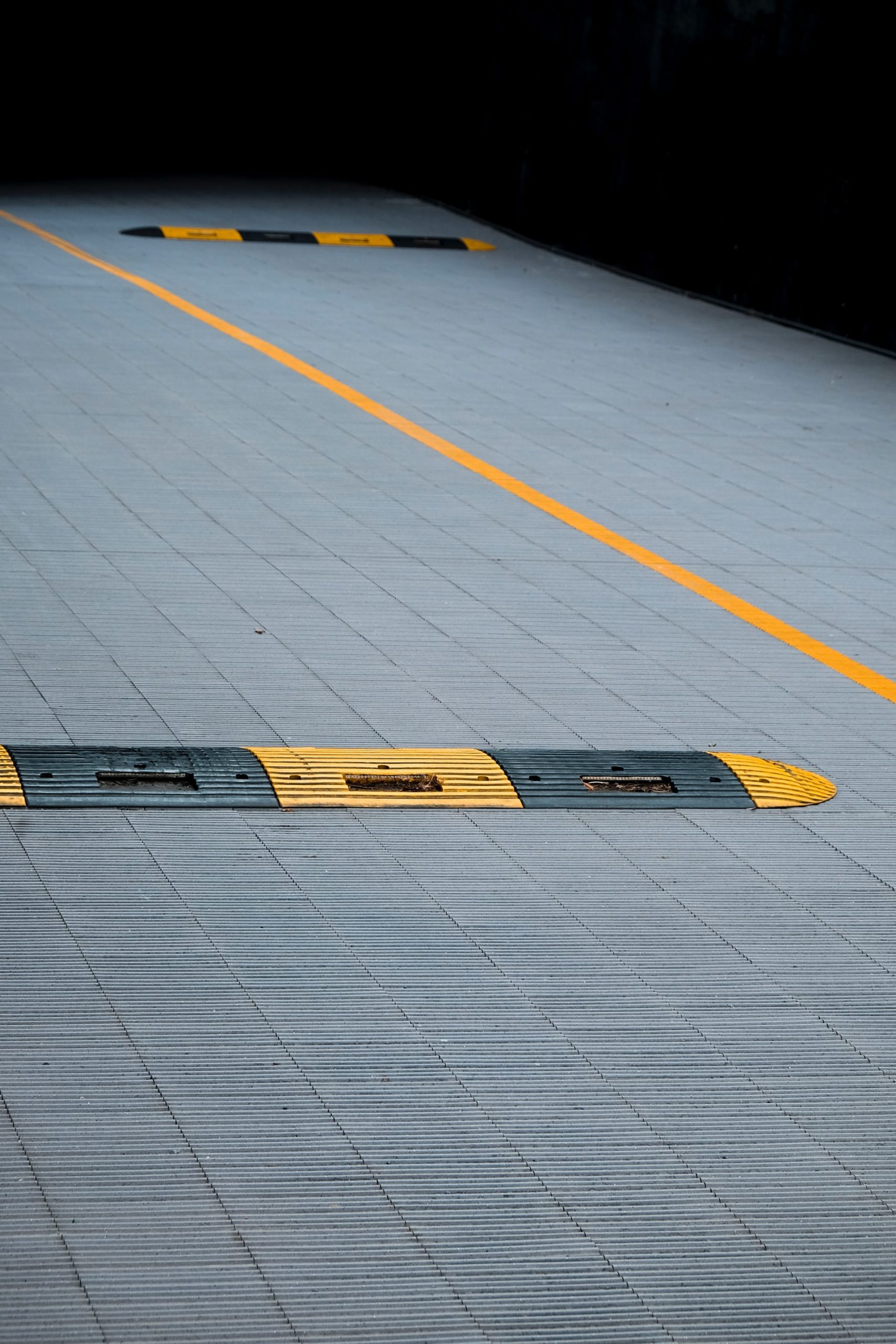It doesn’t take a genius to figure out when and where traffic calming measures are both appropriate and important. Around schools, near playgrounds, in car parks, on quiet residential streets – all places you’ll see the need for speed bumps, speed humps, and speed ramps.
Figuring out where road safety measures like these should be installed is relatively easy. Getting to grips with the formalities of official traffic calming regulations in the UK is something else entirely.
Detailed information can be found by consulting the Highways (Road Humps) Regulations 1999 in full. Below, you’ll find a brief summary of some of the most important points you need to know if considering installing traffic calming measures of any kind in your area.
IMAGE: UNSPLASH
Formal Consultation
It is a legal requirement to consult with the emergency services in your area and the chief of police, prior to installing any traffic calming measures such as speed or access ramps on public roads or land. Depending on the most important routes taken by emergency service vehicles when responding to urgent calls, it may or may not be possible to install speed bumps or speed humps at all.
Local transport operators (such as bus companies) may also need to be consulted, depending on where you intend to install them.
Dimensions
The Highways (Road Humps) Regulations 1999 places specific restrictions on the size of the speed bumps that can be installed on UK roads. For example, all speed bumps must be at least 90cm in length, while all-speed humps should be at least 25mm high but cannot be higher than 100mm at their highest point.
In addition, it is forbidden to install speed bumps on any gradient steeper than 1:10. Speed bumps that should be traversed at a speed of 10mph or less are prohibited for use on public highways, therefore can only be installed legally on private roads.
Location Restrictions
The Highways (Road Humps) Regulations 1999 also clearly states that traffic calming measures like these can only be installed where a road has an existing speed limit of 30mph or lower. The nearest pedestrian crossing to a speed bump or hump must be at least 30 meters away, just as the nearest railway level crossing must be a minimum of 20 meters away.
There are also plenty of good-practice guidelines outlined in the Highways (Road Humps) Regulations 1999 regarding the positioning of traffic calming measures, which are not formal requirements but should be heeded nonetheless.
Lighting And Visibility
If the speed limit of the road in question is 20mph or more, it is necessary for appropriate lighting to be provided so that motorists are able to see the traffic calming measures. This means ensuring that a certain number of streetlights are positioned within close proximity to the speed bump, though should not be too close to the speed bump or directly over it.
Signs And Warnings
Last but not least, it is also a legal requirement to provide adequate signs and warnings of the presence of speed bumps, if the speed limit of the road in question is 20mph or more. This means ensuring warning signs are positioned an appropriate distance from the speed bumps, so as to give motorists in the vicinity sufficient time to slow down safely.
Exactly where these signs are placed isn’t subject to any specific legal requirements, but those who are installing the speed bumps are responsible for ensuring sufficient signage is provided.
If you have any questions or would like to discuss the potential benefits and applications of our traffic calming products in more detail, contact a member of the team at Street Solutions today.
If you are interested in even more lifestyle-related articles and information from us here at Bit Rebels, then we have a lot to choose from.


COMMENTS